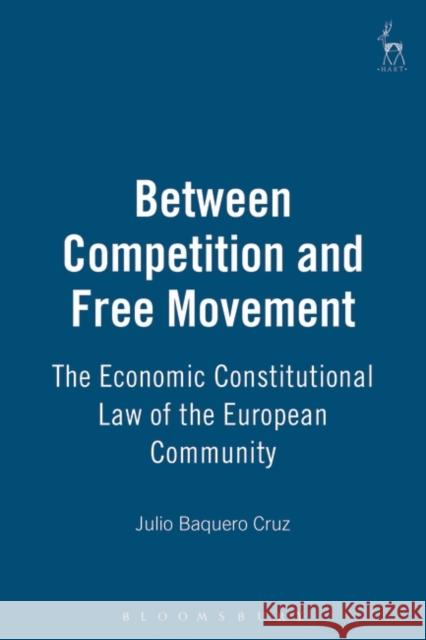Between Competition and Free Movement: Economic Constitutional Law of the European Community » książka
Between Competition and Free Movement: Economic Constitutional Law of the European Community
ISBN-13: 9781841133362 / Angielski / Twarda / 2002 / 204 str.
This book takes as its starting point the interaction and gaps between the free movement and competition rules of the EC Treaty, and is the first book-length treatment of the topic. Competition and free movement are well known as fundamental elements of the Community legal order and are normally treated separately by different specialists. Hence their interaction has received less doctrinal analysis. This work bridges the gap and examines the interaction of these disparate rules using a framework which is defined by the author as the economic constitutional law of the European Community. The book then examines specific issues such as the economic orientation of the constitution of the Community, the structure and principles of interpretation relating to it, or the gaps presented by this structure and the ways in which they have been filled by the European Court of Justice. Particular attention is given to two important topics: the possible extension of the application of the free movement rules to protectionist private conduct and that of the competition rules or principles extracted from them to State action. The problem of the public/private divide, a pressing one for contemporary constitutionalism and societies, is a major concern for the chapters devoted to these topics, and it is seen by the author as the central question of the economic constitutional law of the Community.











